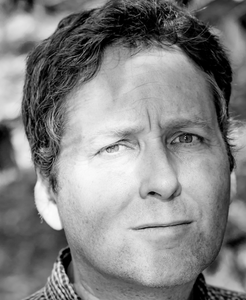R. Sam Deese Publishes Poetry Volume, Surf Music
 R. Sam Deese, lecturer of social sciences, has published his first full-length volume of poetry, Surf Music (Pelekinesis, 2017). Robert Pinsky, one of American’s “foremost poet-critics,” calls it “the work of an athletic, adaptable mind and an enterprising, distinctive listener.” Acclaimed poet and translator David Ferry describes it as “a cascade of observation and pleasure in the witnessing, offering us pleasure in these adept short-line free verse poems.”
R. Sam Deese, lecturer of social sciences, has published his first full-length volume of poetry, Surf Music (Pelekinesis, 2017). Robert Pinsky, one of American’s “foremost poet-critics,” calls it “the work of an athletic, adaptable mind and an enterprising, distinctive listener.” Acclaimed poet and translator David Ferry describes it as “a cascade of observation and pleasure in the witnessing, offering us pleasure in these adept short-line free verse poems.”
The poem’s themes include “being at the beach, believing people, believing things, losing people, encounters with plants & animals large and small, rain, machines, rocks, and sunlight.” The volume builds on the same theme of a chapbook that Deese published in 2000 with Manneken Press. Also titled Surf Music, the chapbook combined nine of Deese’s poems with the art of his brother, Rupert Deese. Deese describes the new book, which also features his brother’s art on the cover, as “a harvest of poems I’ve written over a long period of time”—some when he was 19 years old and some as recently as last year.
Deese compares writing a poem to doing an algebra equation: “I think about a certain subject and then I kind of pare it down and tell what I want to say about it. I’m saying it in the clearest and most concise way and maybe finding some music in the language about that. .. That’s a very rewarding process for me.”
 Robert Wexelblatt, professor of humanities at CGS and author of Zublinka Among Women, describes the range of Deese’s work: “from choppy epigrams that bite and tickle to dazzling breakers that slap and console.” Most of the poems are free verse but some are epigrammatic, short rhyming statements, like the poem, “If Ignorance Is Bliss”:
Robert Wexelblatt, professor of humanities at CGS and author of Zublinka Among Women, describes the range of Deese’s work: “from choppy epigrams that bite and tickle to dazzling breakers that slap and console.” Most of the poems are free verse but some are epigrammatic, short rhyming statements, like the poem, “If Ignorance Is Bliss”:
If ignorance is bliss,
It’s nothing next to this:
The warm, narcotic glow
Of what we think we know.
Although his poems often explore weighty subjects like belief and loss, Deese says, “I value humor and a little bit of ironic distance more than I value a great deal of solemn despair in poetry, or solemn seriousness with a capital S.”
Deese, a historian whose research focuses on Cold War technologies and global environmentalism, sees a connection between history and poetry. The ancient Greeks had a muse for history–Clio– just as they had a muse for poetry, and Deese explores the idea of history’s muse in his poem, “Harp.” “I see poetry as a kind of nonfiction, too. I think poets are trying to get at the truth of something,” Deese says. “I see them as parallel in my own mind.”
Surf Music can be purchased through Pelekinesis Press.